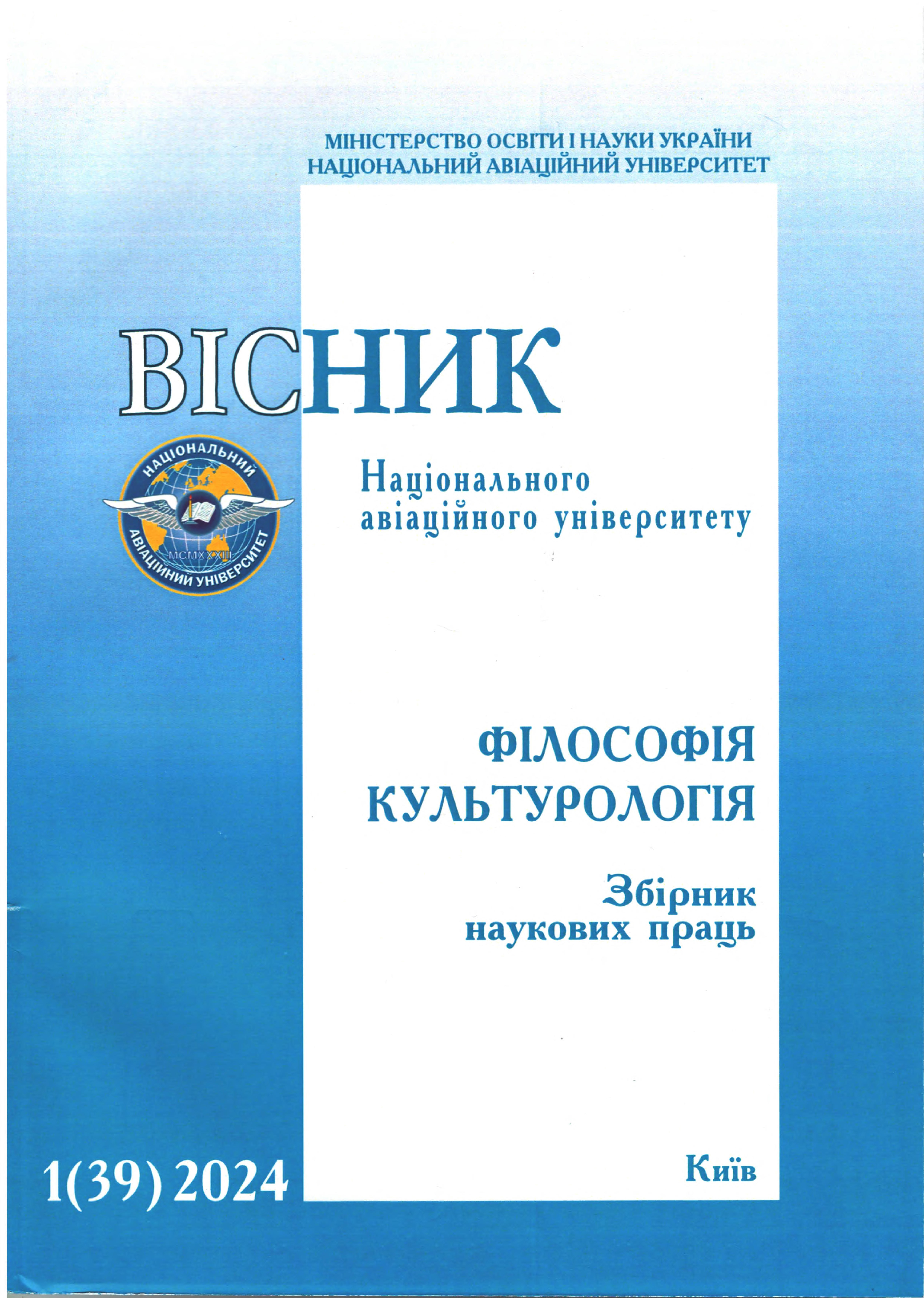IDENTITY ISSUE IN POSTMODERN CONDITIONS
DOI:
https://doi.org/10.18372/2412-2157.39.18447Keywords:
identity, essentialism, constructivism, discourse, narrative, media discourse, postmodernAbstract
Introduction. The issue of identity research is crucial in the postmodern world, as it allows for the realization of any subjectivity. It’s therefore essential to find common grounds for socially acceptable forms of identification and the communicative forms that support them. The aim is the analysis of communicative practices of identity formation and maintenance practices in postmodern social reality. The tasks are 1) consider the specifics of identity as an integral quality of an individual based on leading approaches in socio-philosophical knowledge; 2) to investigate communicative practices of identity formation and maintenance in postmodern society. Research methods for the study are historical-philosophical method, systematic approach, dialectical method; theories of structuralism and poststructuralism; discursive and narrative approaches. Research results. The concept of identity is considered through the prism of the constructivist approach. Within the methodology of discursive and narrative approaches, constructivist opportunities at the social and individual levels of forming and maintaining self-identity are discussed, respectively. Discursive and narrative approaches appear as mutually complementary in studying the context of communicative situations and processes of individual assimilation of sociocultural experience in which identities are constructed and emerge. Discussion. In the unstable postmodern world, which is rapidly changing, the search for identity is carried out through communicative relations. Conclusions. Postmodern sociality is analyzed as a non-linear social dynamic that problematizes the maintenance of the basis of identity laid in historical experience and affirms the variety of projective identities. The postmodern situation actualizes the search for the practical synthesis of essentialism and constructivism.
References
Brubaker R. Ethnicity without Groups. Harvard University Press, 2006. 296 p.
Dijk van T. A. Discourse and Knowledge. A sociocognitive approach. Cambridge : Cambridge University Press, 2014. 400 p.
Elliot A. Introduction. Routledge handbook of identity studies. N. Y., 2011. P. XII––XXIV.
Erikson E. H. Identity and the life cycle. London : W. W. Norton & Company, 2009. 192 p.
Erikson E. H. Identity, Youth, and Crisis. London : W. W. Norton & Company, 1994. 336 p.
Fairclough N., Wodak R. Critical discourse analysis. Discourse studies: a multidisciplinary introduction / ed. by T. A. Dijk van. 2nd ed. London, 1997. P. 258–284.
Foucault M. The order of discourse. Archives of infamy: foucault on state power in the lives of ordinary citizens / ed. by N. Luxon. University of Minnesota Press 2019. URL: http://surl.li/rwkcd (дата звернення: 05.01.2024).
Narrative and media / H. Fulton et al. Cambridge : Cambridge University Press, 2005. 329 p.
Mouffe C. For a left populism. London : Verso, 2018. 51 p.
The discursive construction of national identity / R. Wodak et al. Edinburgh : Edinburgh University Press, 2009. 288 p.
Пісчіков В. С., Холін М. М. Ідентичність особистості як проблема сучасного суспільства. Актуальні проблеми духовності: зб. наук. праць. 2009. № 10. С. 41–50.
Філософський енциклопедичний словник / редкол.: В. Шинкарук, Є. Бистрицький, М. Булатов. Київ : Ін-т філософії ім. Г. С. Сковороди НАНУ, 2002. 742 с.

